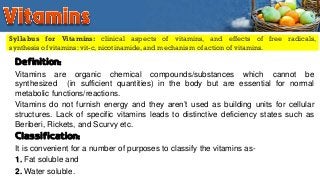
According to research, exercising can help reduce or prevent many chronic diseases. Research has shown that moderate exercise is associated with a lower risk of certain types and types of cancer. Moreover, people who exercise regularly have lower risks of developing diabetes and cardiovascular disease, which are linked to obesity. Also, people who are physically active tend to have fewer symptoms of these conditions, which means that they can help prevent these illnesses.
The benefits of exercise are widespread. It has been shown to increase memory and concentration and reduce the risk for depression and sleeplessness. Furthermore, physical activity increases the number of WBCs, which means that it is an excellent anti-inflammation agent. This could be a way to avoid many diseases. The evidence for exercising as a treatment of chronic diseases is growing because of the numerous benefits it offers.

Transdiagnostic means that the benefits of exercise may vary according to your symptoms. Exercise can improve your sleep quality and mood as well as relieve stress and anxiety. In addition to that, exercise is a great way to reduce the risks of heart disease, diabetes, and stroke. You can prevent these diseases by exercising. It is also an effective way to maintain your health and weight.
According to the Mayo Clinic there are 29,000,000 people with diabetes in America. The vast majority of these patients are unaware of their condition, and many have never been diagnosed. One study that looked at heart attack patients found a 20-25% reduction in mortality when compared with those who did not participate. Other studies also showed higher mortality reductions. Studies from the past were reviewed in large numbers and concluded that exercise rehabilitation made it more likely for people to survive heart attacks.
Regular exercise has numerous health benefits. It can increase quality of your life and lower the risk of various diseases such as type 2 diabetes and cardiovascular disease. It can also reduce the risk of anxiety, dementia, and other health issues. These are just some of the many health benefits that exercise can bring. It is important that you are active and prevent chronic diseases. Exercise offers many other benefits.

Regular physical activity is associated with lower rates of chronic illnesses. You can lower the risk of complications such as high blood pressure. It can also improve your overall well-being. A study of heart failure has shown that a high physical-activity level can prevent the formation of a stroke. This means that your chances of suffering from cardiovascular diseases will be reduced if your activity level increases. Exercise can help you lose weight if you are overweight.
FAQ
What does butter do to men?
Butter is one source of saturated fats. This fat is good for hair and skin health, as well as stronger bones.
Vitamin K is also found in butter, which helps prevent bleeding from cuts or bruises. Vitamin K and vitamin B work together to prevent any bruising.
Butter is also rich mineral, including calcium and phosphorous. These elements help to build stronger bones and teeth.
Butter has its limitations. Butter contains high levels of cholesterol. Studies show that too much cholesterol can increase your risk of developing heart disease.
Butter is also high in saturated fat which can lead to obesity and higher cholesterol.
You can spread butter on bread if you are forced to use it. Bread absorbs less oil than pasta and potatoes.
How fast can I transform myself?
Your mindset must be changed. You have to be willing to change.
Once you've decided to make a change, you must commit to working on your fitness for at least three months.
Next, you will need to find a program that suits your lifestyle.
Also, you need to set realistic goals. You shouldn't waste money on a gym membership that doesn't allow you to put in the effort and time required to reach your goals.
Instead, take advantage of your free time to exercise outside.
Walk around your block for an hour every day to burn calories and help you lose 1 lb per month.
Once you have a plan, you can start to organize your life according to this plan.
This includes scheduling a time to exercise each morning before you leave for work and taking breaks throughout the day so that you can move.
You should also reward yourself for reaching milestones. You could buy accessories or clothes that reflect your achievements.
What is a good schedule for a 7-day work out?
A seven-day exercise program should consist of three days per week of cardiovascular training (running, biking, swimming), two strength exercises (using free weights, weight machines), and one flexibility/core workout (yoga, Pilates). It's essential to do each activity at least once a week. The total time for each session should not exceed 45 minutes.
Cardiovascular Exercises: Running, biking, swimming
The goal is to get in at least 60 minutes of cardio activities per week. Aim for 75 minutes per week to get the best results. Cardio exercises can help improve blood flow and stimulate muscle growth.
Strength Training
While cardio exercises target the heart and lungs, strength training targets the muscles and bones. Strength training builds lean muscle mass, which helps burn calories even when resting.
Flexibility and core workouts
To strengthen your whole body, flexibility and core work outs are excellent ways to do so. Both yoga as well as Pilates are great choices.
What Is The Best Way To Lose Weight?
It's not easy to lose weight. Many people give up easily because they don't know what to do.
However, there are some simple steps that you can take to shed those extra pounds.
First, make sure you eat less calories than you burn. You will gain weight if you eat more calories than you burn.
Second, you must start exercising regularly to burn off all those calories. You have many options, including walking, biking, dancing and jogging.
Third, you need to stop drinking alcohol and smoking cigarettes. These habits will cause you more calories than normal.
Fourth, cut down on junk food and fatty foods. You can replace them with healthier options such as fruits, vegetables, lean meats, whole grains, nuts, seeds, beans, etc.
Fifth, you must change your lifestyle and adopt new habits. For example, you may need to get up early every morning to exercise before work.
Sixth, it is important to be disciplined about your diet and follow it.
You can also burn excess calories by joining a gym, or taking an aerobics course.
These simple tips will help you quickly see results.
How many calories do I need to eat each day?
This varies from person to person. On average, you need 2000 to 2500 calories per days. Based on your age, gender, height and activity level, you will need to calculate how many calories you require.
Statistics
- According to the American Academy of Dermatology (AAD), men over 50 are at a heightened risk of developing it. (healthline.com)
- By John Thompson Take a whopping 38% off a set of PowerBlock Pros. (menshealth.com)
- Get free shipping and 25% off today. (healthline.com)
- An estimated calorie range for moderately active adult males falls between 2,200 to 2,800 calories per day, depending on age. (eatright.org)
- According to the American Heart Association, blood pressure should be checked at least once every two years, beginning at age 20. (my.clevelandclinic.org)
External Links
How To
How do I lose weight while working out?
Exercise helps you lose calories by increasing your metabolism and oxygen intake.
Exercise at a moderate intensity to safely lose weight.
These tips can help you to burn fat while training:
-
Cardio exercises include swimming, running or cycling.
-
Do 30 minutes of exercise three times a week.
-
You can lose weight by adding strength training to the routine.
-
Avoid intense training. You can build muscle without having to lose muscle tissue.
-
When exercising, make sure to drink lots of water. Water is essential for flushing out toxins and keeping your body hydrated.
-
After working out, make sure to drink low-fat proteins shakes. Protein shakes help repair muscles and boosts energy.
-
Eat smaller meals throughout the day, so you don't feel hungry between meals.
-
Don't skip breakfast! Skipping breakfast can make you tired and sluggish.
-
Take care of yourself mentally. Stressful situations can slow your metabolism.
-
Keep a positive attitude. Studies show that overweight people are more likely to be obese than those who perceive themselves as attractive.
-
Get enough rest. A lack of sleep makes it difficult to lose fat.
-
Stay active. Move around at least once an hour.
-
Maintain a healthy diet. You will feel fuller longer if you eat right.
-
Find relaxation techniques. Relaxing doesn't mean your body releases stress hormones which cause muscle tissue to be destroyed.
A balanced diet contains all necessary nutrients for growth and development.
Eat six small meals each day instead of three large ones. This allows your body to properly digest what you have eaten.
For strong bones to be maintained, you need approximately 500mg of calcium per day. Calcium is found in dairy products like yogurt, fortified milk beverages, orange juices, cereals and bread.
Calcium comes from leafy green vegetables, beans, tofu, nuts, seeds, and cheese.
Vitamin D is necessary for the body to absorb calcium. Vitamin D is found in certain fortified foods, such as egg yolk and fatty fish.
Vitamin E plays an important role in skin health. Vitamin E is found in vegetable oils and wheat germ oil, as well as peanuts, almonds and sunflower seeds.
Your body requires zinc to function normally and for wound healing. Zinc can also be found in legumes, oysters, meats and whole grains.
Zinc deficiency can cause fatigue and loss of appetite. It can also lead to depression and impaired immunity.
Too much sugar leads to insulin resistance. This results in higher blood glucose levels. Insulin resistance causes weight gain.
Insulin resistance is caused by high blood levels of free-radicals. Free radicals can be molecules with unpaired electrons that cause damage to cell membranes.
Free radicals come mainly from food additives, pesticides, herbicides, preservatives, smoking, air pollution, radiation, chemicals in cosmetics, lotions, and household cleaning supplies.
Free radicals can lead to cancer and heart disease, diabetes mellitus, arthritis, asthma, and premature aging.
Eating a well-balanced diet with antioxidants is the best way to prevent free radical damage. Antioxidants protect against oxidative damage.
Vitamin C is found in citrus fruits and beta carotene is found in carrots.
Other antioxidant nutrients include selenium, copper, manganese, and zinc.
Selenium is known to protect cells from the oxidative damage that free radicals can cause. Selenium is found in Brazil nuts, tuna, liver, kidney, shrimp, cod, turkey, beef, lamb, pork, and chicken.
Copper protects the eyes, brain, lungs, liver, and red blood cells. Copper is found in shellfish, poultry, meat, and organ meats.
Manganese is essential for bone structure. Manganese can also be found in oatmeal, brown rice, spinach and bananas.
Zinc is important for healthy growth, reproduction, and wound-healing. Zn is found in lean cuts of meat, white fish, poultry, and eggs.